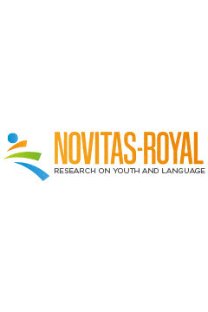İngilizce Yabanci Dil Öğrencilerinin Tartışmacı Yazılarında Zarfları Kullanmaları
Zarf kullanımında ustalaşmak çok çaba gerektirmektedir ve o dilin en gelişmiş kullanıcıları bile onların kullanımında zorluk çekmektedir (Narita & Sugiura, 2006; Peacock, 2010; Lei, 2012; Leedham & Cai, 2013). Bu araştırmanın amacı nispeten yüksek yabacı dil yeterliliğine sahip olan İngilizce yabancı dil öğrencilerin tartışmacı metin yazılarında ne ölçüde farklı zarf türleri kullandıklarını öğrenmektir. Bu maksatla, daha önceki eğitim yaşamlarında akademik yazma becerisi üzerine bir ders almış olan bir grup öğrenci seçilmiştir. Verileri elde etmek için, öğrencilere hedef dilde yönlendirilmiş bir yazma etkinliği uygulanmıştır. Bu araştırmada, veriler zarfların kullanım sıklığına bakarak nicel olarak incelenmiştir. Sonuçlar, İngilizce yabancı dil öğrencilerinin derece zarfları geriye kalan tüm söz bilimsel zarf kategorilerinden daha çok kullandıklarını göstermiştir. Ayrıca, öğrenciler akademik yazılarında zarfları fazla kullanma eğilimi göstermekte ve akademik yazı biçimine uymayan zarflar kullanmaklar. İkinci dildeki zarfların sistemli ve net bir şekilde öğretimine ve bu zarfların ikinci dil yazılarındaki anlam ve kullanımları konusunda öğrenci bilincinin arttırılmasına ihtiyaç olduğunu belirtilmiştir
EFL Learners’ Uses of Adverbs in Argumentative Essays
Adverbs require a great deal of effort to be mastered, and even the most advanced users of that language have difficulty in using them correctly (Narita&Sugiura, 2006; Peacock, 2010; Lei, 2012; Leedham & Cai, 2013). The purpose of this study is to find out to what extent relatively high proficiency level EFL learners use different types of adverbs in their argumentative essays. For this purpose, a group of students who have previously taken an academic writing course are selected. To collect the data, a guided writing activity is applied in the target language. The data is analyzed quantitatively by taking the frequency of adverb use. The results show that EFL learners tend to use degree adverbs more than any other semantic category of adverbs. They also tend to overuse adverbs in their academic writing and use adverbs that are not appropriate in the academic prose. It is implied that there is a need for systematic explicit instruction of L2 adverbs and for raising learners’ awareness in the meanings and functions of adverbs in L2 writing
___
- Biber, D., Johansson, S., Leech, G., Conrad, S., & Finegan, E. (1999). Longman grammar of spoken and written English. London: Longman.
- Babanoğlu, M. P. (2014). A Corpus-based study on the use of pragmatic markers as speechlike features in Turkish EFL learners’ argumentative essays. Procedia-Social and Behavioral Sciences, 136, 186-193.
- Can, C. (2011). Conjunctive adverbs in learner English: A usage-based approach. In A. Lyda, D. G. Baker, M. Blaszak, & T. Wasza (Eds.), The Dialogue of Language, the Dialogue of Culture, pp. 92-105. Warsaw, Poland: University of Silesia.
- Crawford, W. (2008). Place and time adverbials in native and non-native English student writing. In A. Adel & R. Reppen (Eds.), Corpora and Discourse: The Challenges of Different Settings, pp. 267-289. Amsterdam: John Benjamins.
- Granger, S., & Rayson, P. (1998). Automatic profiling of learner texts. Learner English on Computer, 119-131.
- Gilquin, G., & Paquot, M. (2008). Too chatty: Learner academic writing and register variation. English Text Construction, 1(1), 41-61.
- Hinkel, E. (2002). Second language writers’ text: Linguistic and rhetorical features. Mahwah, NJ: Erlbaum.
- Hinkel, E. (2003). Adverbial markers and tone in L1 and L2 students’ writing. Journal of Pragmatics, 35(7), 1049–1068.
- Hinkel, E. (2004). Teaching academic ESL writing. NJ: Lawrence Erlbaum Associates.
- Hinkel, E. (2005). Hedging, inflating, and persuading in L2 academic writing. Applied Language Learning, 15(1/2), 29.
- Leedham, M., & Cai, G. (2013). Besides… on the other hand: Using a corpus approach to explore the influence of teaching materials on Chinese students’ use of linking adverbials. Journal of Second Language Writing, 22(4), 374-389.
- Lei, L. (2012). Linking adverbials in academic writing on applied linguistics by Chinese doctoral students. Journal of English for Academic Purposes, 11(3), 267-275.
- Liu, G. (2013). On the use of linking adverbials by Chinese college English learners. Journal of Language Teaching and Research, 4(1), 149-155.
- Liu, G. (2014). Investigating Chinese college learners’ use of frequency adverbs: A Corpusbased approach. Journal of Language Teaching and Research, 5(4), 837-843.
- Narita, M., & Sugiura, M. (2006). The use of adverbial connectors in argumentative essays by Japanese EFL college students. English Corpus Studies, 13, 23-42.
- Orfano, B. M., Oliveira, A. L., & Tenuta, A. (2014). Epistemic modality through the use of adverbs: a corpus-based study on learners' written discourse. Letras&Letras, 30(2), 104-121.
- Peacock, M. (2010). Linking adverbials in research articles across eight disciplines. Ibérica: Revista de la AsociaciónEuropea de Lenguaspara Fines Específicos (AELFE), (20), 9-34.
- Pérez-Paredes, P., & Sánchez-Tornel, M. (2014). Adverb use and language proficiency in young learners’ writing. International Journal of Corpus Linguistics, 19(2), 178-200.
- Philip, G. (2008). Adverb use in EFL student writing: from learner dictionary to text production. In Proceedings of the XIII EURALEX International Congress, Barcelona, 15-19 July, pp. 1301-1310.
- Quirk, R., Greenbaum, S., Leech, G., and Svartvil, J. (1985). A grammar of contemporary English. London: Longman
- Sheikhani, F. L., Abdollahi-Guilani, M. (2017). A corporal investigation into the employment of adverbs on masters EFL candidates' academic essays. Modern Journal of Language Teaching Methods, 7(1), 156-167.
- Trebits, A. (2009). Conjunctive cohesion in English language EU documents–A corpus-based analysis and its implications. English for Specific Purposes, 28(3), 199-210.
- Toulmin, S. E. (1958). The uses of argument. Cambridge: Cambridge University Press.
- Yağız, O., & Demir, C. (2014). Hedging strategies in academic discourse: a comparative analysis of Turkish writers and native writers of English. Procedia - Social and Behavioral Sciences, 158, 206-268.
- ISSN: 1307-4733
- Yayın Aralığı: Yıllık
- Başlangıç: 2007
- Yayıncı: -
Sayıdaki Diğer Makaleler
İngilizce Yabanci Dil Öğrencilerinin Tartışmacı Yazılarında Zarfları Kullanmaları
